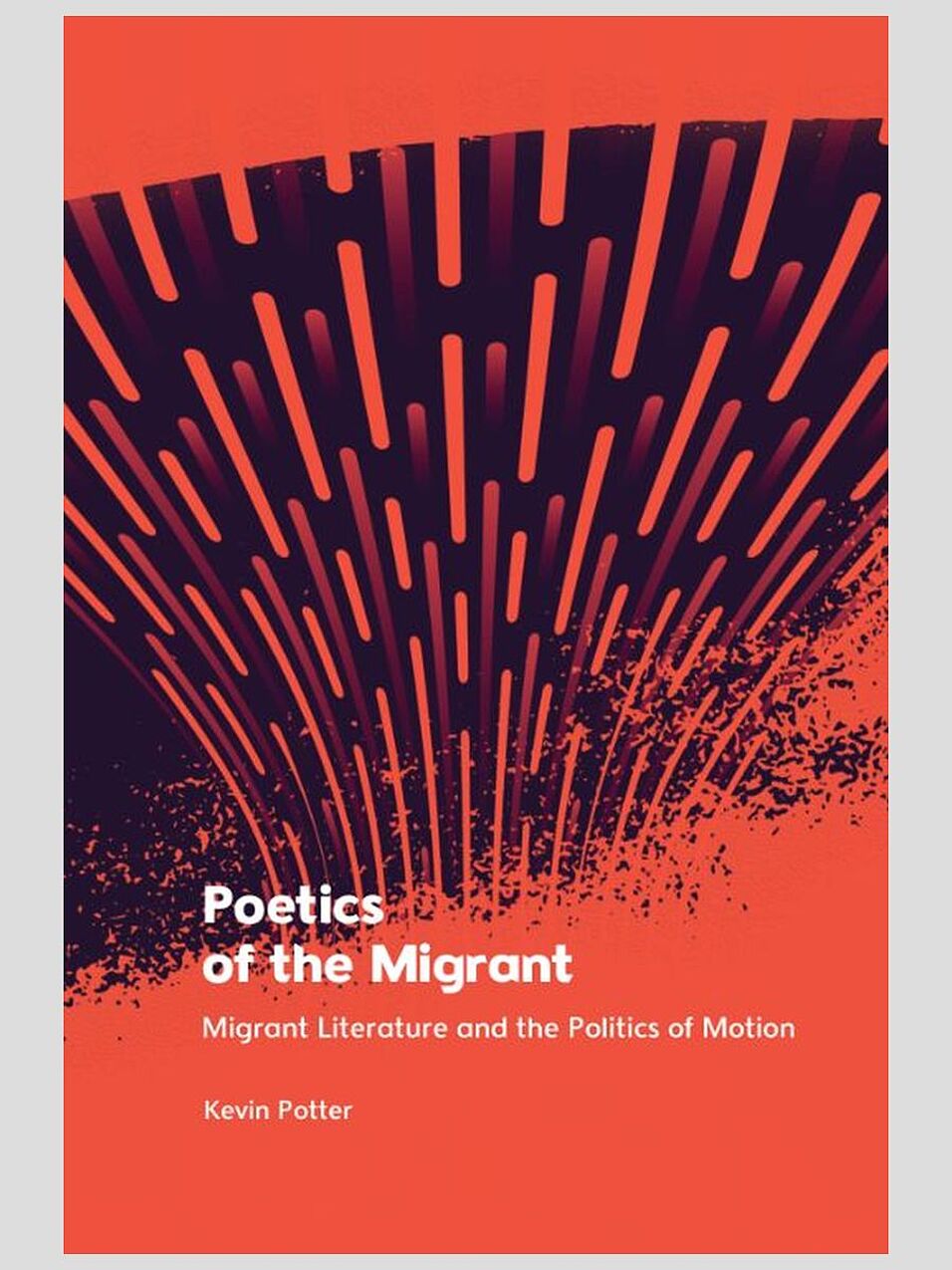Potter, Kevin (2023). Poetics of the Migrant: Migrant Literature and the Politics of Motion. Edinburgh University Press.
Introduces a new concept of 'kinopoetics' to transform how we read migrancy and literary form
- Coins a new concept and offers a ‘poetics’ (i.e. a method and theory) of migrancy and literary form that adheres to a movement-oriented perspective
- Synthesises a variety of fields in order to interest readers not only in literary studies, but cultural theory, philosophy, political science, linguistic, and border studies, and the synergies between them
- Remains in dialogue with the dominant strands of migrant literary studies, showing how they can be expanded and enhanced through a philosophy of movement
Since the 1980s, readers and scholars alike have celebrated migrant literature for not only depicting migration, but for inspiring reflections on class, race, gender, nations, and mobility. But, beyond depicting migration, is it possible for migrant literature to be a force of movement itself? Poetics of the Migrant calls upon the philosophy of movement and a counter-history of migration to invent a theory and method for analysing migrant literature. The text uncovers patterns of movement that migrant texts enact and create – in other words, a movement-oriented poetics. Poetics of the Migrant understands movement as the defining force of human history; and the migrant is the primary figure of cultural and political transformation. Migrant literature makes it possible to transform how we process and interpret social history through social motion. Perhaps, from here, we can imagine a different world: one where movement and migrancy are legible and thinkable.
Kevin Potter is a Postdoctoral Researcher in the Department of English and American Studies at the University of Vienna. He is also an associated member of the Mobile Cultures and Societies Research Platform. His scholarly work has appeared in ARIEL, Poetics Today, Deleuze and Guattari Studies, New Formations, and Incontri. His public writing has appeared in Jacobin, ROAR Magazine, Monthly Review, The Millions, and Dissident Voice.
The book is available for purchase at the Edinburgh UP website. You can use discount code PAPER30 for 30% off the paperback edition. University students and staff can also access the e-book for free through the University library.

